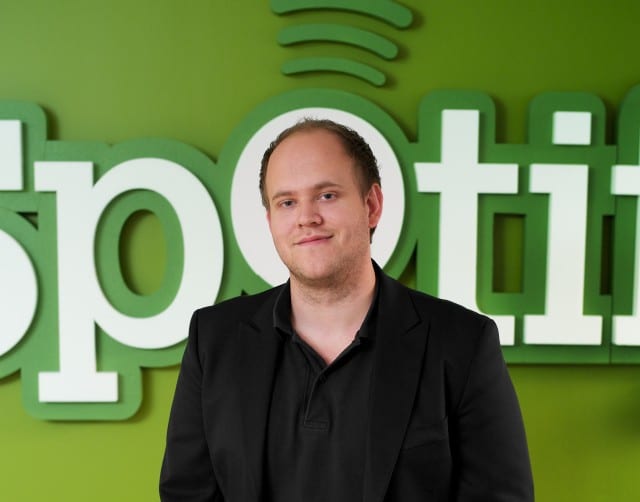
We’d like to know (so email us if you do).
And we’re not the only ones…
** The Register:-
The site, citing “statements seen by” itself, recently said Spotify pulled in £82,000 from advertising in May and had 17,000 paying UK subscribers, a tenth of the total sign-ups. At an event in London this week, 7digital CEO Ben Drury told journalists even he didn’t know how much Spotify, a 7digital partner, was making. “We do!,” replied The Register’s Andrew Orlowski from the audience. But these figures weren’t confirmed at the time and conflict with others claimed since…
** Out-Law:-
The tech law site reckons Spotify “earns more than £1 million (and as much as £6 million) a month from its premium subscribers” and total “earnings could be as high as £72 million a year“. Its methodology: “the figure is derived from statements made by Spotify executives”. Out-Law is using a Spotify confirmation that it has six million total users, and CEO Daniel Ek’s recent admission that fewer than 10 percent are paying subscribers, to arrive at a figure of 600,000 subscribers.
In Out-Law’s logic, 600,000 users paying £0.99 a day means £1 million a month, while 600,000 paying £9.99 a month means £6 million a month. But who knows? The split of daily (£0.99) versus monthly (£9.99) and annual (£120) payers isn’t known. And when Ek said subscribers were “not in the double digits” percent, that’s not the same as saying it’s as high as 10 percent. So this is not so much the “reveal” Out-Law claims, as putting two and two together from partial and unclear statements.
** Guardian.co.uk:-
Charles Arthur presents a dizzying array of workings-out to concluded Spotify is paying out “at least £6 million per month” (ie. the same maximum amount Out-Law reckons it’s earning), but then recalculates – with the help of We7’s ever-open CEO Steve Purdham – to arrive at “Spotify apparently owes £18 million per month in music licensing costs“.
But even the revised calculation, taking account not just for publishing royalties but also performance royalties, may be off. Both PRS For Music (the body that licenses music services and collects fees for the privilege) has twice refused to tell paidContent:UK which of its published rates Spotify is paying, as has Spotify itself. That’s a prerequisite for figuring outgoings, even accounting for the fact that Spotify’s label royalties may be favourable given the Big Four labels’ apparent investment in the service.
** BBC News:-
Rory Cellan-Jones casts his eye over the challenges, but admirably avoids the maths altogether, concluding: “I’m none the clearer as to which will be the first to make a profit.”
Also, the assertion, from one rival in the article, that Spotify has grown thanks to “executing supremely as a PR vehicle” is unfair – like Google (NSDQ: GOOG), Spotify has barely done any marketing; it’s become much talked about due to its inherent usability and the free-music proposition.
No-one bar Spotify, PRS and the labels know the service’s true licensing outgoings, and no-one bar Spotify knows either its total outgoings or its income.
Here’s what we do know: The Stockholm-listed company recorded annual losses of 16.26 million SEK (£1.35 million) in 2007 and 31.75 million Swedish krona (£2.64 million) in 2008. But that was through early, startup investments. Its UK office, by end of 2008, clocked up scheduled outgoings of £4.55 million, more than the £4.33 million value of its assets at the time, with a deficit of £263,422. But the same goes for those early costs as at home in Sweden, and only now is Spotify operating a first full year as a service.
After those early build-out costs, the biggest outgoings now are likely to include royalties. Ek acknowledges Spotify is serving “billions of streams” each month. A model like this that commands higher and higher outgoings the more popular a service becomes begins to sound like a nightmare. But not only do we not know how many billion; we also don’t know at what price each stream is charged – if labels have given favourable rates, the scenario may be less nightmarish than it seems.
The people behind Spotify are talented. And we hope Ek can hit his target of building a billion-dollar global company that both remains independent and European, and gives the music business the jump-start it needs. But there’s been a cloud of hype and skewed reporting that is surprising Spotify bosses on a daily basis.
The rush to work out exactly how well the service is doing understandable. After all, Spotify is the hottest company right now trying to profit from fremium online entertainment…
But, amid the praise that it’s enjoying while it continues to build up, against a backdrop of the underlying complexity of music-business finance, and in lieu of Spotify actually opening its bank statements to us, we may have to conclude: we just don’t know yet.